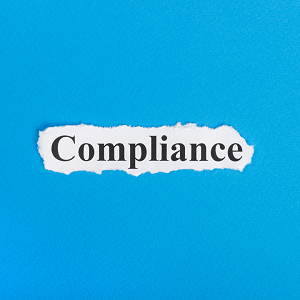 By John C. Garner, CEBS, CLU, CFCI, CMC
By John C. Garner, CEBS, CLU, CFCI, CMC
Chief Compliance Officer
Bolton & Co.
IRS Mails Employer Mandate Penalty Letters
The IRS said it would send “Letter 226J” to employers in December. The letters contain an individual employer’s proposed assessment of Employer Shared Responsibility Payments (ESRPs) under the Affordable Care Act (ACA) for calendar year 2015. The letters will list the employee(s) who received premium tax credits and how those employees were classified on the employer’s ACA reporting Forms 1094-C and 1095-C. Employers have only 30 days from the date of the letter to contest the 2015 assessment or pay it; failure to respond in a timely manner means that the assessment is accepted. Employers should carefully monitor their mail because even if they complied with the ACA’s ESRP requirements, they might still receive a Letter 226J. This could happen if employees incorrectly claimed to be eligible for the ACA premium tax credit, despite the employer offering them minimum essential coverage that is affordable and provides minimum value. Employers that receive an incorrect ESRP assessment must document from their records why it is incorrect. For more details, visit http://dmec.org/2017/11/14/employer-mandate-penalties-aca-coming-soon/ and https://www.irs.gov/individuals/understanding-your-letter-226-j.
IRS Guidance Will Help Employers Adjust Withholding Systems
On Dec. 26 the IRS announced it will issue a guidance in January to help employers and employees understand the impact of federal tax reforms on employee withholding. “Use of the new 2018 withholding guidelines will allow taxpayers to begin seeing the changes in their paychecks as early as February.” The IRS announced it will not require employees to fill out new W-4 forms. Under the 2017 withholding tables and systems, lower-earning employees may overpay 2018 federal taxes in January, but the IRS guidance should enable appropriate adjustments beginning in February. Some financial advisors are encouraging employees to increase their 401(k) savings in January to increase savings, rather than using the new tax rates to increase take-home pay. Watch for the guidance at https://www.irs.gov/newsroom.
Limited Impact from Leave-as-an-Accommodation Ruling?
In Severson v. Heartland Woodcraft, Inc., the 7th Circuit U.S. Court of Appeals rejected extended leave as an accommodation under the ADA. Severson requested an extended leave after using all of his FMLA entitlement. The Equal Employment Opportunity Commission argued in an amicus brief that a long-term medical leave of absence should qualify as a reasonable accommodation when the leave is of a definite time limited duration, requested in advance, and likely to enable the employee to perform the essential functions of the job after returning. Rejecting this argument, the court held that “a multimonth leave of absence is beyond the scope of a reasonable accommodation under the ADA.” However, this ruling applies only in the 7th Circuit (Illinois, Indiana, and Wisconsin); other circuit courts have reached different opinions. Employers should continue to engage in the interactive process when employees request leaves, and can explore other alternatives, such as transfer to a vacant position, or temporary light-duty assignments. For more details, visit http://dmec.org/2017/11/25/7th-circuit-court-case-addresses-leaves-ada-accommodations/.
Washington Paid Sick Leave
Beginning on Jan. 1, 2018, employees in Washington state began accruing an hour of paid sick and safe leave (PSSL) for every 40 hours of work. Employees may use the time to manage their own or a family member’s health condition, to cover lost wages if a workplace or a child’s school closes for health-related reasons, or for issues of domestic violence, sexual assault, or stalking. Employees may start using the accrued PSSL on the 90th day of employment, with no cap on the number of PSSL hours accrued or used in a benefit year. Employees can carry over up to 40 hours of accrued, unused leave to the next year. The new statewide law overlaps with Seattle and Tacoma city ordinances; employers must comply with the provisions most favorable to employees, creating time-keeping and other challenges for employers. To learn more, visit http://www.lni.wa.gov/WorkplaceRights/LeaveBenefits/VacaySick/PaidSickLeave.asp.
NLRB Overturns Obama-era Decisions
With the National Labor Relations Board (NLRB) now under the control of Trump appointees, the Board is rolling back Obama-era decisions. On Dec. 14 and 15, the Board re-instated earlier positions in three areas. In the Hy-Brand Industrial Contractors ruling, the Board restored a prior precedent that “joint employer” status exists only where the second entity has actually exercised control over the other entity’s employees and has done so “directly and immediately.” The PCC Structurals ruling makes it more difficult for unions to carve out smaller, artificial groups in an effort to disenfranchise employees who are inclined to vote against union representation. In The Boeing Corporation, the Board revised its standard for assessing whether workplace rules and policies interfere with employee rights under Section 7 of the National Labor Relations Act. To learn more, visit https://www.jacksonlewis.com/publication/unwrapping-late-year-nlrb-decisions-next-steps-your-organization-consider.



